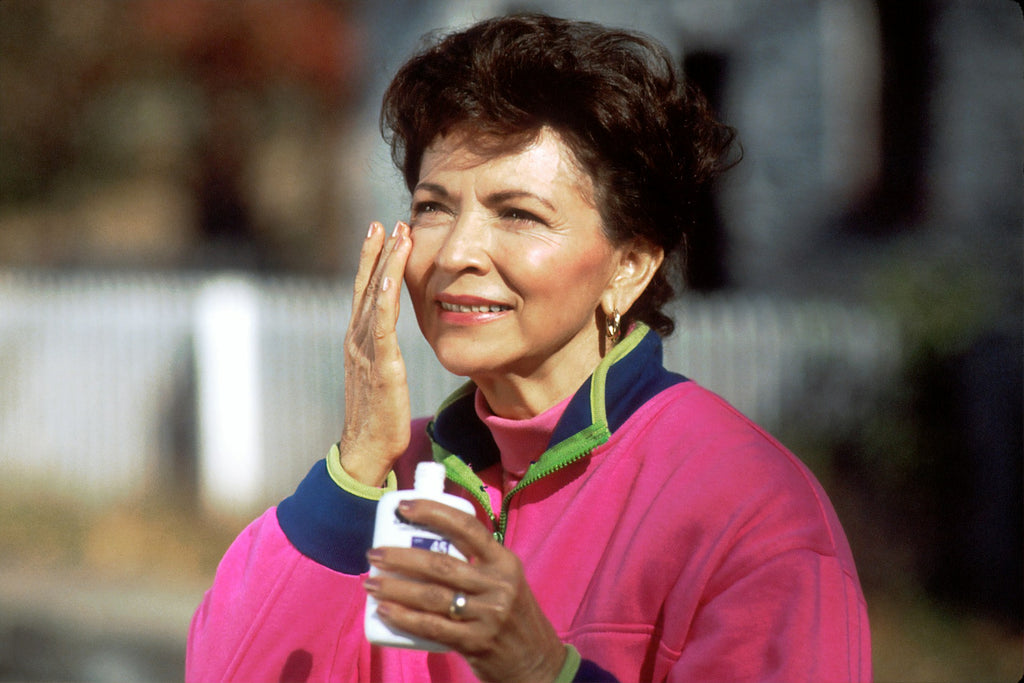The Best Way To Get Vitamin D In Your Body During Winter
7 Ways To Increase Your Vitamin D Intake During The Dark Months
Do you think you get enough vitamin D through a balanced diet or being active outdoors? Think again.
Since vitamin D cannot be obtained naturally through an unfortified diet (and the body requires sunlight to produce this essential nutrient), supplementation may be necessary during the winter.
"Vitamin D is essential for allowing your body to use calcium to support bone growth and health. When vitamin D levels are low, this process isn't as efficient and our bones can become brittle," says nutritionist and author of Lisa Richards, author of "The Candida Diet," explains. "While we may not notice it at first, the side effects of chronic vitamin D deficiency may show up later in life through brittle bones."
Richards says the signs and symptoms of vitamin D deficiency can easily be mistaken for side effects of a busy and tiring lifestyle. This can look like chronic fatigue, hair loss, muscle pain, and depression.
Much of the northern United States and Canada don't get enough sunlight throughout the winter for your body to absorb enough vitamin D, but there are some super easy ways to make sure you're getting enough of the sunshine vitamin.
If you want to be conscious about your vitamin D intake, we've rounded up some of the best options below.
7 Tips for Optimizing Vitamin D Levels
Check Your Vitamin D Levels Regularly
Research shows that more than 42% of Americans are vitamin D deficient. While this is a large number, it doesn't mean you fall into that category."First, you need to check your levels once a year," advises Paula Doebrich, RDN. “It’s important to know your vitamin D levels so you know if you need supplementation.”
Use Low-SPF Sunscreen

"Our skin produces vitamin D when exposed to the sun, and while sunscreen does reduce the amount of vitamin D we produce because it blocks UVB light, few people wear enough sunscreen to block all UVB light. ,” explained Dobrich.
This means that as long as you don't wear SPF 100 sunscreen all winter long, you can still get some vitamin D while protecting your skin.
Check Your Diet

Adding vitamin D-rich foods and fortified products to your diet is one of the easiest (and tastiest) ways to ensure you're boosting your vitamin D levels. These foods include fatty fish like salmon or tuna, mushrooms, egg yolks, cheese or fortified dairy products, soy milk, orange juice, and breakfast cereals, says Melissa Mitri, a registered dietitian at Wellness Verge.
Take Vitamin D Supplements
If you're not sure you're getting enough vitamin D, the best way to make sure you're getting enough without changing your shopping list or daily habits is to take a vitamin D supplement."There are many different dosages of vitamin D supplements available to meet your needs, but the minimum recommended daily intake of vitamin D is 600 IU (international units) per day," Mitri explains.
Go Out Regularly

Natural sunlight, even for just a few minutes, is the best way to absorb vitamin D.
"Even if it's cold, getting outside for 15 minutes three times a week is enough to boost vitamin D levels," says Mitri. "You can do this by taking a walk or playing outside with your kids."
Use Light Therapy
You may have seen light therapy (also known as SAD lights) all over social media. While they are popular for treating seasonal depression, they can also be used to boost vitamin D levels.
“Use a light box that produces at least 100 times more lux than a light bulb,” advises Dr. Eliana Ross. "It should also filter out ultraviolet rays, as they are harmful to the retina. Phototherapy should use ultraviolet B (UVB) light to stimulate the production of vitamin D in the body."
Consider Biohacking

Darin Steen, a personal trainer and lifestyle coach, suggests that the best way to optimize vitamin D levels is to use biohacking techniques to help the body naturally produce more vitamin D on its own, rather than relying on outside forces.
“The most powerful and smartest medicine in the world is nature and your body’s innate wisdom,” explains Steen. He recommends practicing fasting, grounding/grounding, and gazing at the sun at sunrise and sunset to optimize our Sleep hormones and circadian sleep cycles.
"The impact of grounding on inflammation, immune responses, wound healing, and the prevention and treatment of chronic inflammatory and autoimmune diseases is significant," he adds.
This concept can be a huge boost to overall health, especially when paired with supplements and vitamin D-rich foods.






























